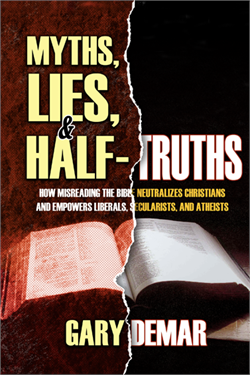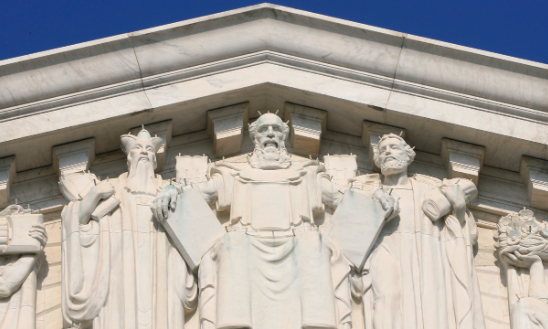Gary discusses statements made by Texas state representative James Talarico, who claims to be a Christian and recently said a number of things publicly that actually pit the Bible against itself.
Many Americans might be surprised to learn that the Supreme Court building has a number of depictions of the Ten Commandments and other lawgivers prominently displayed, some of which are carved in stone, adorning entry ways and visible in the chamber where the justices sit.
As Chief Justice Warren Burger noted in his majority opinion of Lynch v. Donnelly (1984), the Supreme Court Chamber in which cases related to religion are heard “is decorated with a notable and permanent—not seasonal—symbol of religion: Moses with the Ten Commandments.” State courtrooms and government buildings across our land have housed similar displays for decades without any legal challenge or violation of the First Amendment to the Constitution. “In fact, the Ten Commandments are more easily found in America’s government buildings than in her religious buildings, thus demonstrating the understanding by generations of Americans from coast to coast that the Ten Commandments formed the basis of America’s civil laws.”
The Constitution itself recognizes one of the most religiously specific of the Ten Commandments. In Article I, section 7 of the Constitution, Sunday is set aside as a day of rest for the President, a direct reference to the fourth commandment: “If any Bill shall not be returned by the President within ten Days (Sundays excepted) after it shall have been presented to him, the Same shall be a Law in like Manner as if he had signed it, unless Congress by their Adjournment prevent its return, in which Case it shall not be a Law.”
The statute books of all fifty states include prohibitions against blasphemy (third), dishonoring parents (fifth), murder (sixth), adultery (seventh), theft (eighth), and perjury (ninth). The state of Georgia, like many other states, still retains legislation regarding Sunday (fourth). The phrase “Almighty God” is found in numerous state constitutions, a recognition of the first commandment.
The fact that the United States Constitution ends with “in the year of our Lord” certainly refutes the claim of strict separationists that our Framers desired to separate all aspects of religion from government. Every state constitution recognizes God, and there is no indication that these references refer to anyone other than the God of the Bible. Did Congress violate the First Amendment when it declared 1983 to be “The Year of the Bible” in the following statement?:
The Bible, the Word of God, has made a unique contribution in shaping the United States as a distinctive and blessed nation… [D]eeply held religious convictions springing from the Holy Scriptures led to the early settlement of our Nation… Biblical teaching inspired concepts of civil government that are contained in our Declaration of Independence and the Constitution of the United States.
The last sentence is interesting: “Biblical teaching inspired concepts of civil government contained in… the Constitution.” Are we to conclude that the Constitution is unconstitutional? Notice that there is no mention of the Code of Hammurabi, the Koran, the writings of Solon, or the precepts of Confucius.

Myths, Lies, and Half-Truths
Too many Christians believe that the Bible is irrelevant this side of heaven. Myths, Lies, and Half-Truths takes a closer look at God's Word and applies it to erroneous misinterpretations of the Bible that have resulted in a virtual shut-down of the church's full-orbed mission in the world (Acts 20:27). Due to these mistaken interpretations and applications of popular Bible texts to contemporary issues, the Christian faith is being thrown out and trampled under foot by men (Matt. 5:13).
Buy NowTexas state representative James Talarico claims to be a Christian and recently said a number of things publicly that actually pit the Bible against itself. Gary quotes some of them and comments, as well as discussing the current situation in Haiti.

